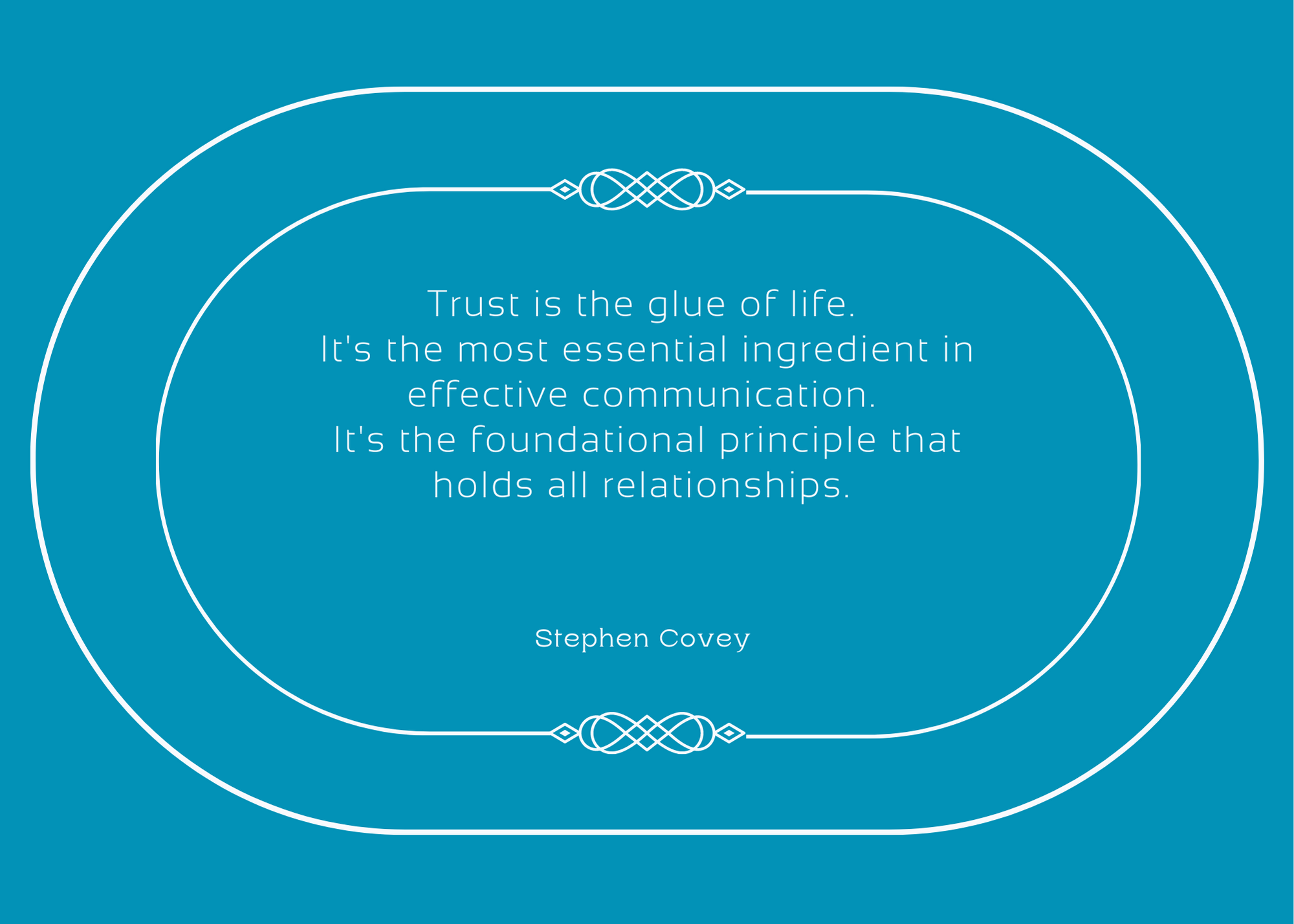Many organizations profess work cultures which value trust and inclusivity in their marketing jargon by using the nomenclature such as “transparency” and “open door policy” to entice new staff and encourage existing employees. However, trust is a result of developed cognitive abilities that foster loyalty and high performance, yet, when lost, can cause catastrophic conditions within the business environment. Creating a framework to trust between teams through mindful training at work supports clear communication and offers other benefits in a cascading effect. When an employee gains tools to become more self-aware, their new behavior permeates all levels within a company, extending out to improved attitudes and how the staff interacts and presents themselves in customer service scenarios. The importance of developing a culture to build trust at work requires business leaders to maintain an open mindset which fosters healthy interactions and the implementation of programs that support conflict resolution.
Start fostering a culture of trust by developing an in-house mindful trust building program
Trust Equates to Confidence
When employees carry a level of trust for their company, they view their workplace as a location with integrity and honor. These ideologies are a kind of intangible base of respect that has value in social development. Without trust, there is suspicion, doubt, and distrust that permeates a business’s ecosystem. When a company works to establish and maintain trust, employees feel confident in what management conveys to them, and they, in turn, pass that attitude to customers and clients. Creating a “trust culture” has become a top focus in the business world. Organizations with their fingers on the pulse of good internal morale know that trust is a motivator that can inspire excellence.
Trust is Personal and Customer Concentric
Customers often view trust as a personal and intimate experience. They want to feel as if they can believe the promises presented by a front-line employee are stated with honesty, and that a company will stand by them for the long term. Employees who go the “extra mile” by over-delivering and are cognitive of their impact on the customer relationship ensure a beneficial connection between the customer and company. This bond is an emotional connection established by the employee’s wiliness to meet the customer’s needs, thus opening doors for satisfaction for both the customer and the company.
Trust at Work Inspires Financial Gain
The concept of trust is in a company is an organizational, economic driver as well. Proof of this is in the Forbes “100 Best Companies to Work For” list, where “trust” is used for two-thirds of the criteria in judgment. Both customers and potential employees view the list as a gold standard, and it comes as no surprise that the businesses on the list are above “the average annualized returns of the S&P 500 by a factor of three.” The research that Forbes uses demonstrates that “trust between managers and employees is the primary defining characteristic of the very best workplaces.”
Trust Across America is an advocacy group whose research and work tracks the performance and actions of some of the most trustworthy public companies in the U.S. Their studies have shown that high-trust companies “are more than 2 ½ times more likely to be high performing revenue organizations” than what is referred to as the low-trust companies.

Reputation: Beyond the Bottom Line
The statement that employees are the most valuable asset of a company stands true, and it goes hand-in-hand with another adage that “trust is earned and not given.” Staff members are the face, voice, and attitude of a company, and when their confidence is at a high level, they can expand the reputation of an organization to new heights. Trust is a leading factor for everyone in a business, and for those working with clients, a trusting attitude can increase the bond and add to the company’s stature.
Employees in an organization that they trust will often take personal ownership of the company’s culture development. In an environment of trust, their interactions and work product positively affect their confidence and communication abilities. They hold a unique sense of pride and dignity in working in an environment known for internal trust, encouraging employment longevity, and attracting like-minded applicants. Staff members with a favorable view of the business they work for can have increased performance and extend a perspective of excellence in customer interaction.
Resources:
https://hbr.org/2017/01/the-neuroscience-of-trust
https://www.insightlink.com/why-trust-matters-in-the-workplace.html
https://www.entrepreneur.com/article/293170
https://hyken.com/customer-experience-2/trust-enhances-employee-and-customer-experience/
https://hbr.org/2016/07/the-connection-between-employee-trust-and-financial-performance
https://www.forbes.com/just-companies/list/
https://www.contractormag.com/management/best-practices/article/21125265/building-customer-trust


